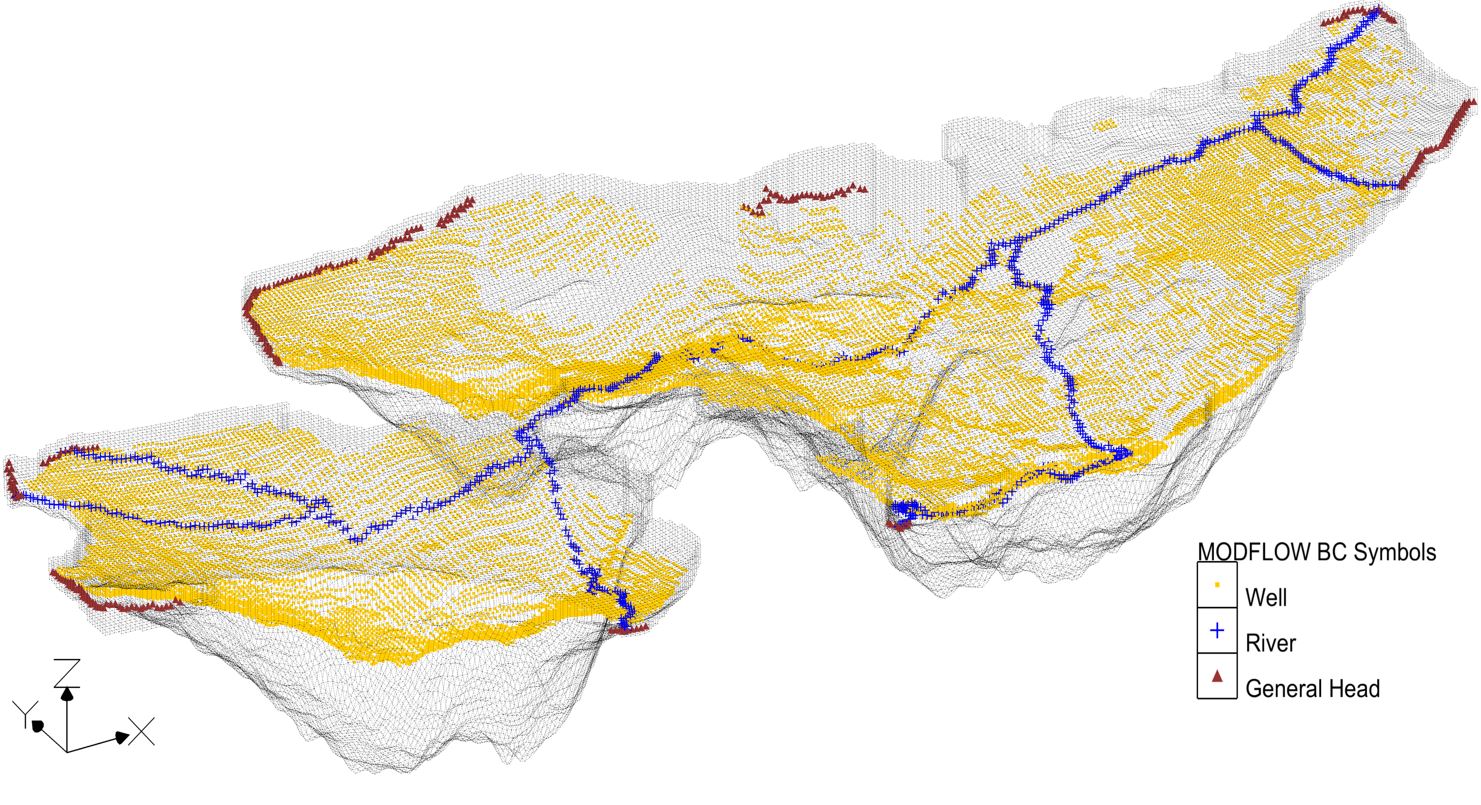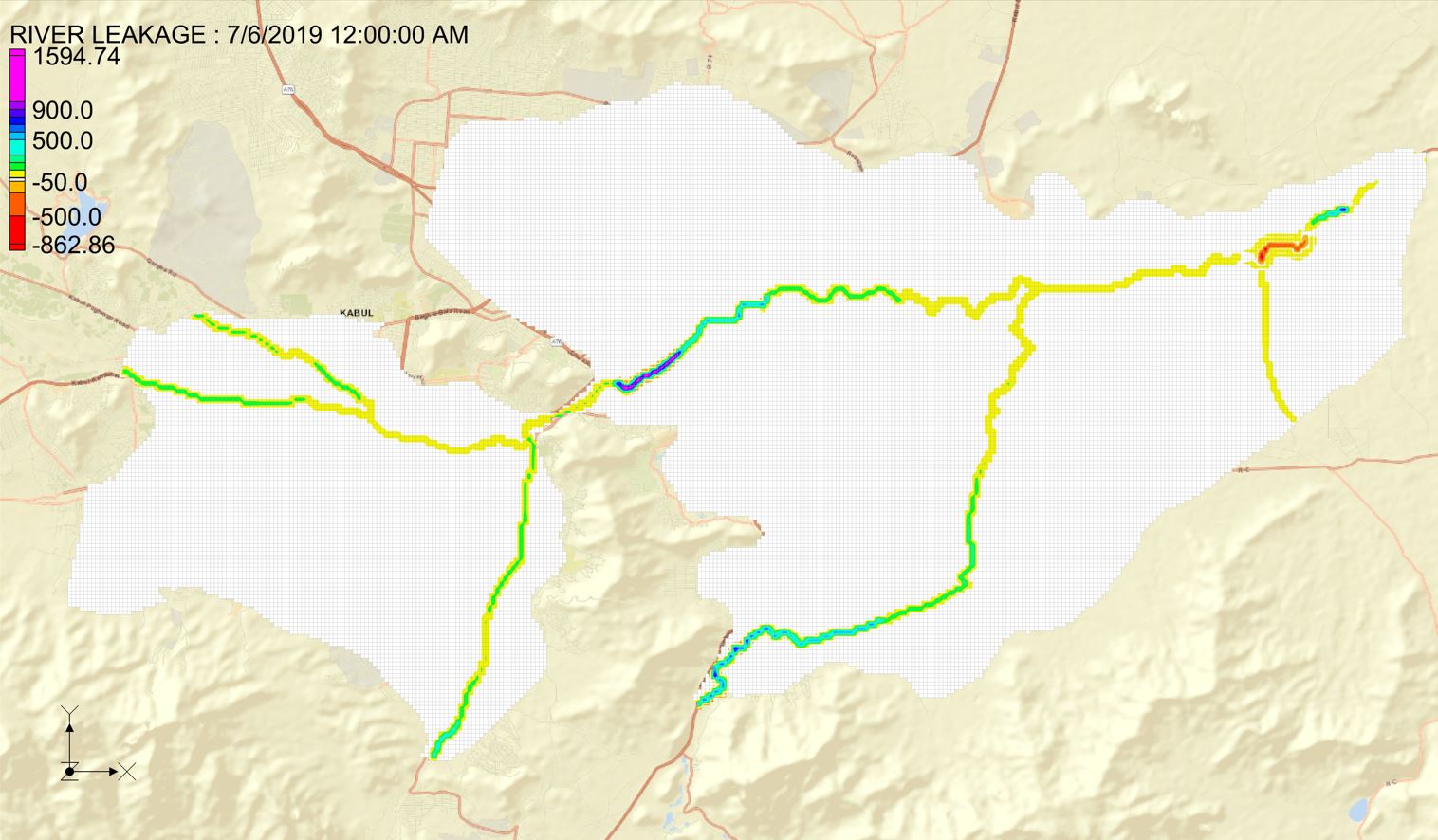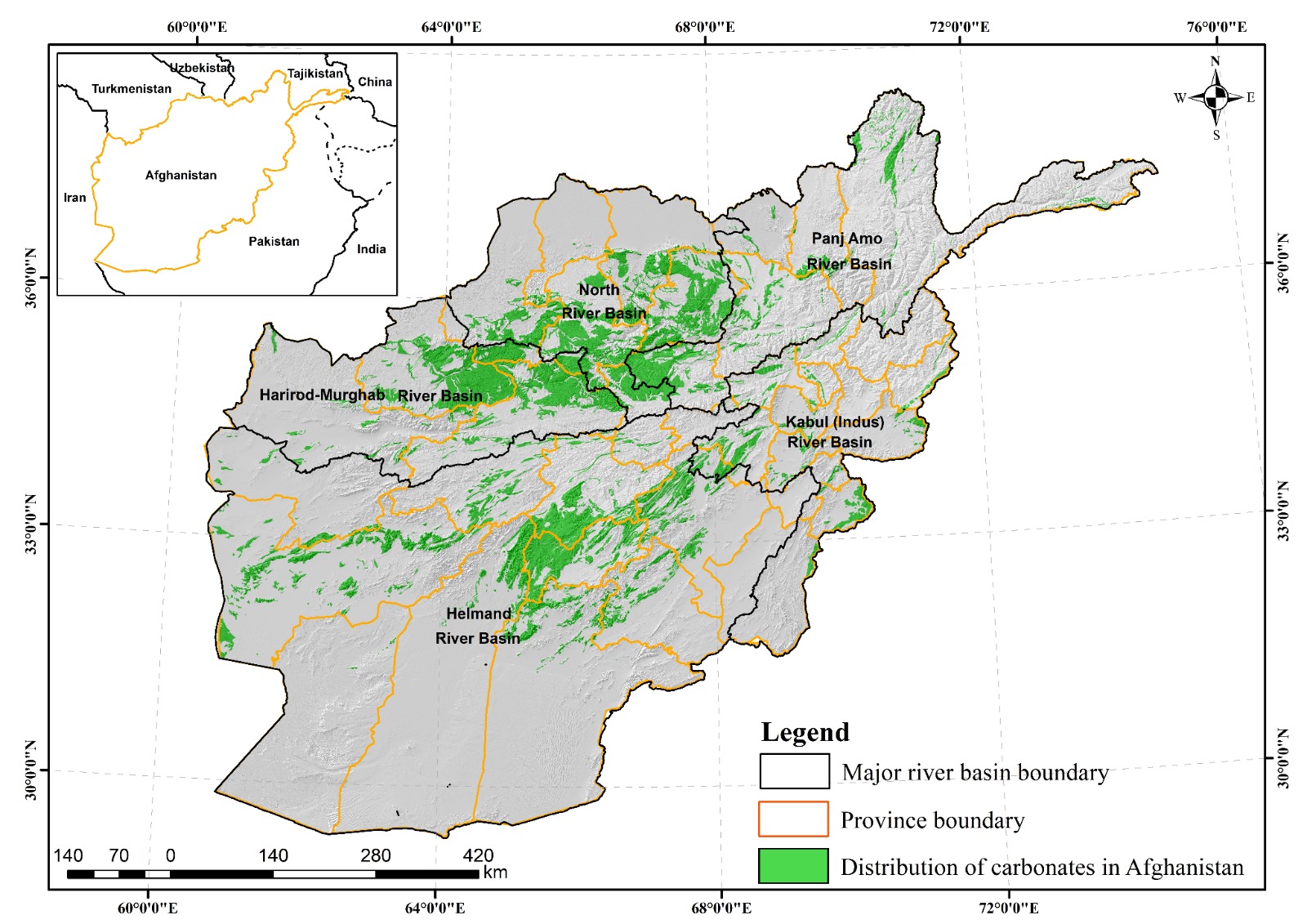
The effects of urbanization on the groundwater system of the Kabul shallow aquifers, Afghanistan
The capital city of Afghanistan, Kabul, has experienced rapid urbanization since the end of 2001. The aim of this study is to evaluate the impact of rapid urbanization on the Kabul aquifer system, which is the main source of water for domestic, agricultural and industrial use in the area. Satellite imagery, groundwater levels and rainfall historical data were analyzed in conjunction with physico-chemical parameters that were measured at 27 water wells located in the Kabul Plain in 2020. Land-cover maps indicate that the urban surface area increased by 40% between 2000 and 2020, whilst the agricultural surface area simultaneously decreased by 32%. Meanwhile the Kabul Plain has globally experienced a severe decrease in groundwater levels (-0.8 m/year on average, and a fall of 60 m in some places) due to overabstraction, which has also seen changes in groundwater flow directions. Hydrochemistry, on the other hand, reveals that chloride concentrations and salinity increased throughout the aquifer between 2005 and 2020, while the nitrate concentration decreased in most places of the Kabul Plain over the considered period. The results suggest that rapid urbanization has had serious detrimental effects on both groundwater quantity and quality. Without urgent preventive policy and the implementation of effective practices, groundwater resource depletion and groundwater quality deterioration in the Kabul shallow aquifers are likely to continue in the future.
Categories
Recent Post




